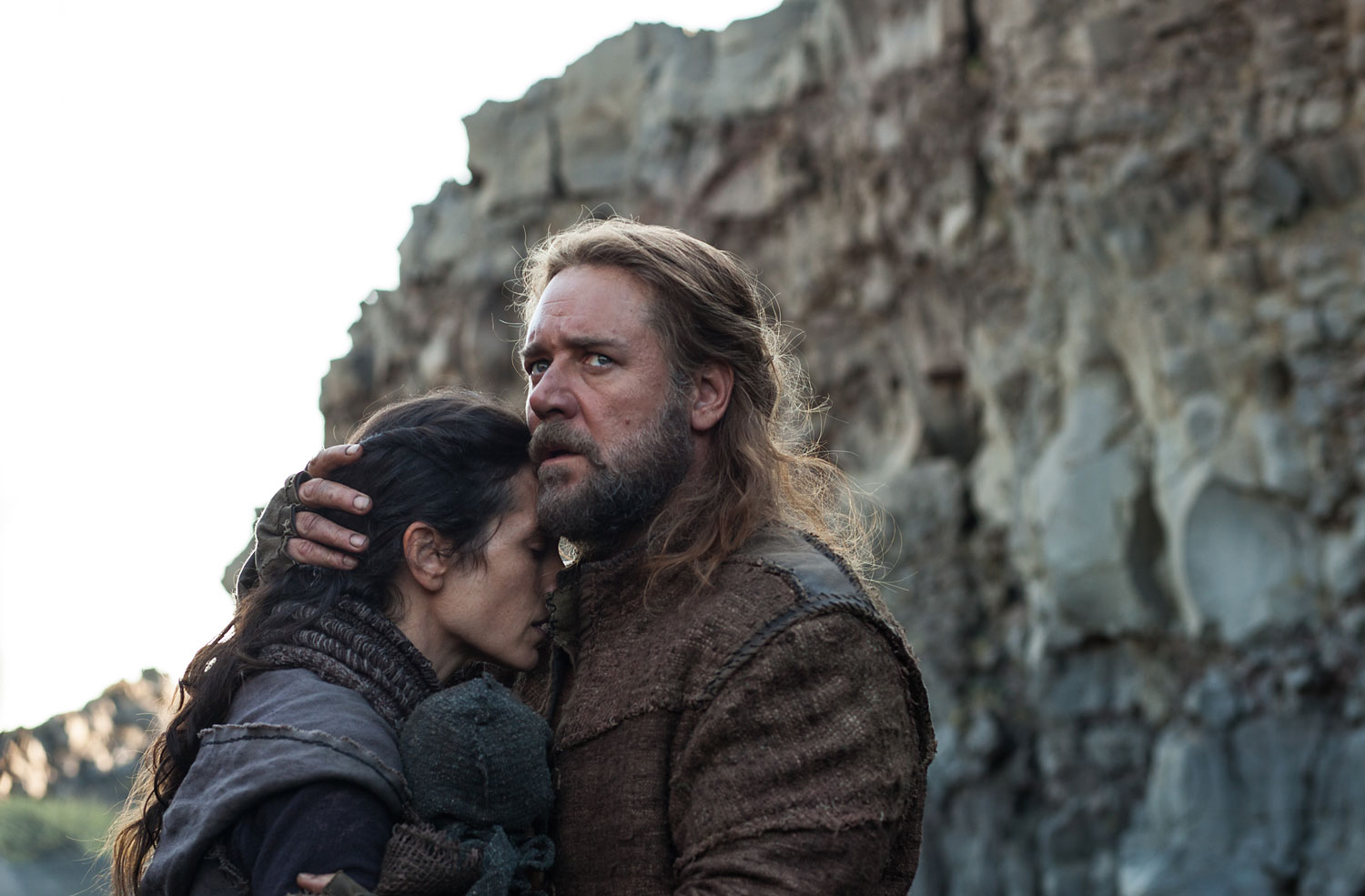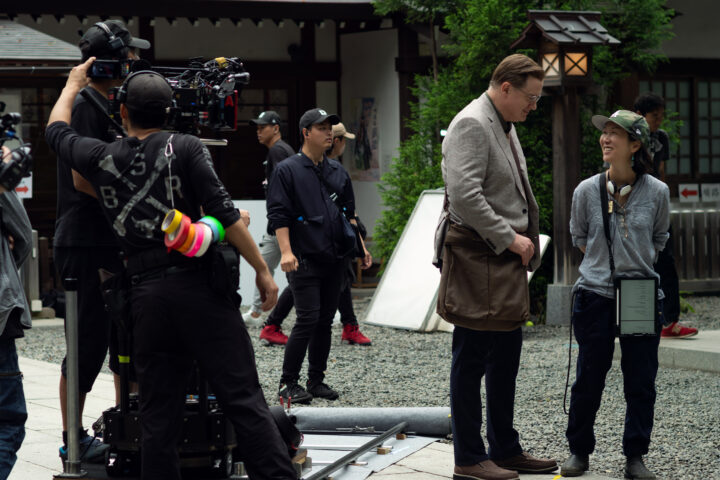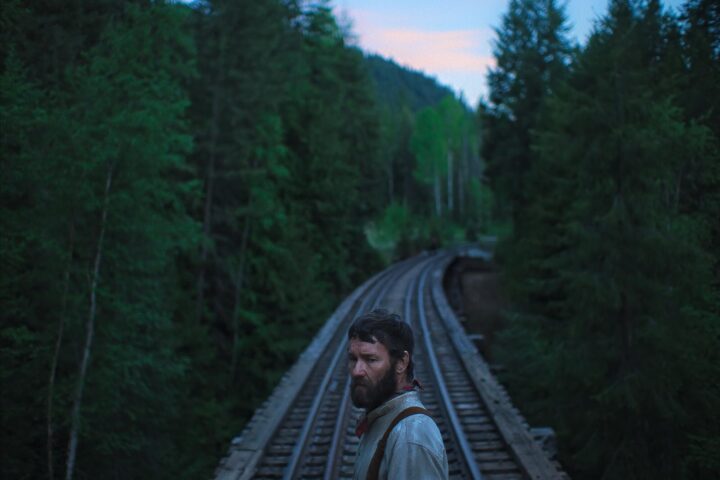Darren Aronofsky’s ambitious and visionary Noah is a vividly rendered epic adventure writ large, using the Biblical tale as a framework for a morality play about faith, obsession and forgiveness. It’s a story that has fascinated the director since his youth, and in this risky and expensive (reportedly $150m) movie, Aronofsky and co-screenwriter Ari Handel fashion a deep-think action film delivered in Aronofsky’s signature blazing aesthetic. Onscreen here is an unlikely combination of respect for its source material combined with a sort of revisionism that incorporates both creation and evolution, faith and free will—and a very clear environmental messages—in a movie that could have been silly or worse, but yet is always watchable and surprisingly entertaining.
With superb imagery by DP Matthew Libatique and a forceful score by Clint Mansell, both regular Aronofsky collaborators, Noah depicts both the terrors of the great flood and those of fundamentalist zealotry. It’s a picture that reminded me, at times, of both Terence Malick and Ken Russell in its combination of the lyrical and the mad, and one sure to divide viewers and inspire many interpretations and debates in illustrating the odyssey of an honorable person driven to near-insanity by a blind faith, yet ultimately embracing his own flawed human nature, or sin, if you will.
The picture opens literally in the beginning, with a prologue shot of a serpent entering Eden before Original Sin leads to a mano-a-mano between brothers Cain and Abel, followed by the former’s subsequent flight from paradise. Flash forward to his father’s murder, after which adolescent Noah grows up quickly to become Canaanite Russell Crowe, married to Naameh (Jennifer Connelly) and with sons Ham (Logan Lerman) and Shem (Douglas Booth).
For Noah, an ordinary, Creator-fearing man (the word “God” is never used in the film), surviving in Canaan is no small feat, and the opening sections of the film feel like a battle-strewn, 80s sword-and-sandal epic (or even Mad Max Beyond Thunderdome), complete with high-style, designer rugged-wear and threats of feudalism at every turn.
But once Noah begins to experience terrifying visions of the coming apocalypse, Aronofsky delivers disturbing sequences of impending disaster. Noah isn’t spoken to by the Creator, but rather haunted, and these moments—including simple shots like a flower growing from barren dirt and a frightening mass drowning—are among the film’s most visually imaginative.
All of Noah feels like the work of an auteur in complete control of his aesthetic, including the expert use of CGI to depict the scores of animals that arrive to populate the ark, itself a massively designed behemoth built of materials derived from a magically sprung forest. When the flood itself arrives, the picture gives us not just gales of wind and rain, but also Old Faithful-esque geysers shooting up violently from the Earth’s core.
In addition to the human characters, Aronofsky gives us a collection of giant, rock-like creatures named The Watchers, fallen angels encased deep inside of stone, and while their battle sequences certainly give a wow factor to the tale, as voiced by a gravelly Nick Nolte and Frank Langella, they feel like something straight out of Transformers, slightly out of place in this story, fun as they may be to watch do battle in a Lord of the Rings-esque sequence once the rain begins to fall and the wicked Canaanites, led by the nefarious tubal-Cain (an excellent Ray Winstone), attempt to force passage onto the ark.
Also aboard the vessel is Noah’s adopted daughter Ila (Emma Watson), budding love to Shem, Noah’s favored son. As the wayward Hem, whose affection for the fallen Na’el (Madison Davenport) creates a father-son rift of epic proportions, Lerman, the sensitive star of The Perks of Being a Wallflower, registers strongest of the younger set. And Anthony Hopkins turns up in another one of his wise old men who have seen it all, and know more, as grandfather Methuselah, an all-seeing soothsayer holding secrets of the universe.
Crowe is effectively focused and powerful in the way that only he can be in such a broad canvas adventure, his signature authority in every frame. But it’s Connelly who steals the picture from the rest of the cast, digging deep into the film’s latter stretches when confronting her husband with a very human and moral ultimatum that tears at his increasingly obsessive devotion to the Divine. When barren Ila becomes pregnant and the question of humanity’s survival in the new world is at stake, Aronofsky delivers a treatise on the gulf between slavish, Evangelical devotion and acceptance of human nature.
If Noah clearly says one thing, it’s that we are destroying the planet with climate change, but those who prefer to hear the film’s message about obedience to the Creator will surely read simply as such. Be that as it may, there is no mistaking the screenplay’s take on a very disturbing late-act development involving an unexpected pregnancy and its implication for the future of the planet as being about anything other than the dangers of extremism, and it is this section that gives Noah its very best scene where Connelly begs her husband to change ideological course.
Beautifully designed and powerful in theme, performance and aesthetic, Noah is a riveting experience that does justice to a classic story as both a personal crusade for Aronofsky and as a grand and exciting Hollywood epic.
3 1/2 stars.



